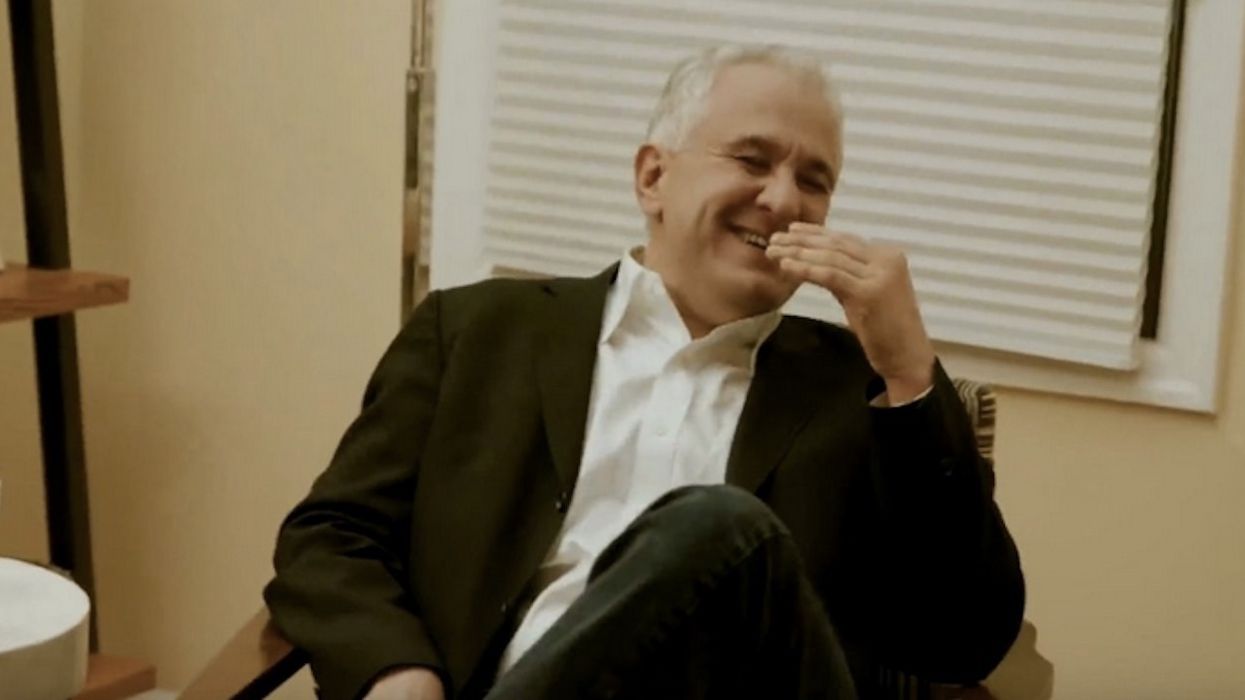
Image source: YouTube screenshot

'I also pleaded guilty to plagiarizing "Mein Kampf," but they wouldn't accept that guilty plea'
The saga continues for Portland State University professor Peter Boghossian — one of three academics who teamed up to expose the "biased academic left" in a hilarious-yet-disturbing project in which they convinced numerous peer-reviewed journals to accept bogus "grievance studies."
Portland State administrators found in December that he violated school policy by publishing false research and then launched disciplinary proceedings against him.
Boghossian shared on Twitter last week the letter he received from the school regarding its final judgment:
On the good side of things, the school found that Boghossian didn't participate in any plagiarism, fabrication, or falsification — and ruled he didn't do anything unethical to animal research subjects.
On the bad side of the ledger, the school determined that Boghossian did violate human subjects' rights and protections.
The school's letter said he must complete "Protection of Human Subjects" training, and that he's hereby forbidden to participate in any "human subjects"-related research or sponsored research until he can show evidence that he understands the protections the school offers human subjects.
Boghassian, James Lindsay, and Helen Pluckrose discussed their project last fall in a USA Today op-ed titled, "From dog rape to white men in chains: We fooled the biased academic left with fake studies."
Lindsay (an author and mathematician) and Pluckrose (editor-in-chief of Areo Magazine, which focuses on "humanism, culture, politics, human rights, science, and free expression") wrote with Boghassian in their op-ed that they submitted 20 papers to journals focusing on hot-button issues such as gender, race, and sexuality.
They said seven of their papers were accepted — "many in top-ranking journals" — and included an adaptation of Adolf Hitler's "Mein Kampf," a look at "fat bodybuilding" for a discipline called "fat studies," as well as one that addressed "rape culture" by "monitoring dog-humping incidents at dog parks in Southeast Portland, Oregon."
Another paper suggested placing "white and male students on the floor in chains" as a way to create "experiential reparations."
The writers said their papers "fit in" with what the journals "consider scholarship."
More from their op-ed:
Our paper suggesting we put privileged white and male students on the floor in chains takes only a small step forward from the existing literature we used to support it. For example, we were encouraged by the peer reviewers for that paper to follow Barbara Applebaum's work to ensure we didn't show too much compassion to those mistreated students, which would "recenter" the needs of the privileged. The peer reviewers encouraged us to frame it in terms of Megan Boler's "pedagogy of discomfort," which recommends that overcoming privilege requires being made uncomfortable and left to sit with that discomfort.
The writers added that "aggrieved academics can put broken, biased, and even openly racist and sexist ideas through the peer-review process, and have them come out the other side legitimized as though they are established knowledge." Such "laundered" ideas, they noted in their op-ed, "often take a cynically biased perspective on men, masculinity, heterosexuality and whiteness."
And without checks and balances in academia, the trio said such ideas have "seeped out of the university and become part of our everyday lives."
More from their op-ed:
Concepts like "toxic masculinity," "white fragility," "cultural appropriation," and "microaggressions" are now familiar to many of us. Most people, however, don't realize that these concepts originated within academic journals just like those that accepted our papers. Those journals laundered them through a broken system, leading them to be picked up by journalists, activists, HR departments, and policy makers as though they're some kind of established truth.
To get a sense of how Boghossian is reacting to the latest sanction, consider he tweeted that "I also pleaded guilty to plagiarizing 'Mein Kampf,' but they wouldn't accept that guilty plea."
Boghossian did, however, thank the likes of Jordan Peterson, Richard Dawkins, Christina Hoff Sommers, and Jonathan Haidt for writing letters supporting him.
Here's a clip describing the trio's work:
Academics expose corruption in Grievance Studiesyoutu.be
Reason's John Stossel said he tried to talk to the editors of the journals that accepted the bogus grievance studies to find out how they got fooled, but none of them wanted to — except for Roberto Refinetti, editor in chief of Sexuality and Culture. His journal published the fake study titled, "Going in Through the Back Door: Challenging Straight Male Homohysteria, Transhysteria, and Transphobia Through Receptive Penetrative Sex Toy Use."
Refinetti told Stossel the trio of writers who pulled off the hoax are the ones at fault: "You're deceiving people without much of a reason."
Stossel, however, disagreed and said they had quite a valid point: "Their hoax woke us up to the fact that some academic journals publish nonsense."